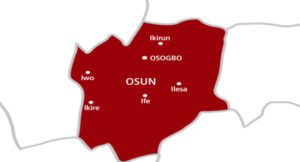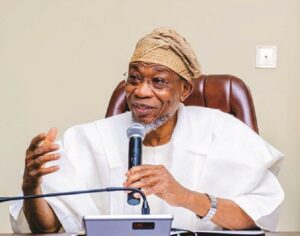
Life expectancy and economic situations of Nigeria
By Adémólá Òrúnbon
Life expectancy is a measure of the length of life expected to be lived by an individual at birth. Improvement of life expectancy to at least 70 years by 2020 and above is one of Nigeria’s health policy targets. Life expectancy is frequently utilised and analysed in the composition of demographic data for the countries of the world, for the attainment of mortality experience, and for more reliable international comparisons.
Indeed, life expectancy is very crucial to the developing worlds who are earnestly striving for achieving socio-economic progress through investing significantly in social sectors like health, education, sanitation, environmental management, and sustainability.
In Nigeria, as in other developing countries, variations in morbidity and mortality have been associated with a wide variety of measures of socio-economic status, including per capita GDP, fertility rate, adult illiteracy rate, per capita calories intake, health care expenditure, access to potable drinking water, urban inhabitants, unemployment rate and the nominal exchange rate.
In fact, over the last decade, several investigators have documented the stagnation or possible decrease in life expectancy among Nigeria residents on the bottom rungs of the socio-economic ladder. Recent research has found that, at least in some groups of Nigerians, deaths due to drug overdose have increased dramatically in recent years and that this increase is largely responsible for the overall stagnation of historic trends toward increased life expectancy.
Even in the years to come, life expectancy of the common man and middle class in Nigeria tends to also decrease dramatically due to the increasing population, but high cost of foodstuff, drugs and many more in the markets. This resulted in the increase of production of fake drugs which litter the markets, recently, National Agency for Food & Drugs Administration And Control (NAFDAC) alerted Nigerians to be wary of fake drugs which are being distributed by unscrupulous elements.
Some researchers seeking to explain these death-rate increases focus on an increasing supply of illegal drugs and prescriptions for pain medications by medical providers. Others use the unifying construct of “deaths of despair” to describe deaths due to suicide and the abuse of opioids, alcohol, and other drugs.
While despair can have multiple origins. A commonly cited source is an economic downturn and its effect on expectations about future job prospects and on the self-perception of individuals as successful providers for their families. This study examines the link between mortality of older, working aged (45 to 64) Nigeria adults and local economic shifts to evaluate the role of job prospects in various causes of death and their related mortality trends.
We do this by comparing mortality trends in geographic locations that experienced strong economic downturns related to their changing industrial composition of employment to trends in locations that have either benefited from those industrial changes or experienced less of a downturn.
First, we test whether economic conditions are associated with mortality at all, regardless of the mechanism. Second, we test whether several specific causes of death are correlated with such economic conditions. One hypothesis suggested by the deaths of despair construct is that suicides and substance abuse will increase most when economic conditions worsen.
Another, suggested by a separate line of research, is that poor economic prospects introduce stress leading to harmful biological effects and several types of chronic disease. Different from the deaths of the despair approach, this “weathering” hypothesis predicts increased mortality from stress-related chronic conditions such as cardiovascular disease and cancer as an outcome of economic downturns. While these hypotheses are not mutually exclusive, they do suggest different pathways for understanding the relationship between the economy and health and mortality. Separating deaths by cause is critical to understanding the relative importance of each pathway.
However, when we look at the relationships between economic downturns and death rates at the local area level, we find that while distress in local area economies does predict increased mortality for stress-related chronic diseases, consistent with the weathering hypothesis, it predicts decreased mortality from suicides, opioids, and other substance abuse. The latter finding suggests caution in the application of the construct of despair in explaining recent mortality patterns.
And, indeed, one of the tools that we use to measure the growth of an economy is the Gross Domestic Product, and it is very clear that as far as the GDP is concerned, Nigeria is not doing very well. We have to be very open and honest to ourselves, Nigeria has not collapsed as a country; we thank God for that. But as far as growing the economy is concerned, I think Nigeria is largely struggling.
I don’t think the state of the economy is something to cheer about; I think by all parameters, if you compare Nigeria to its peers in terms of where they were before and where they are now, I can only say that we have performed sub-optimally. Docile followership, ineffective and compromised leadership and structural flaws in the economy have produced sub-optimal results.
Look at your life expectancy; it is usually dropping on a daily basis due to the lackadaisical and non-challant attitude of our leaders at the helm of our affairs. Look at labour productivity; we are -0.04 percent, while many of some countries are doing three to five percent labour productivity growth. Look at power output; while our population has grown by three to four percent, our power output has declined by over five to six percent per annum.
All we need to do is to accept that we are not as rich as we think we are, and we have to give up some things; we have to differentiate between what we need and what we want; and we have to give up some things and focus on the others. If you prioritise, you are likely to achieve better results.
Some of the reasons responsible for the struggle are clearly known. One of them is insecurity; the insecurity in the country assumes an alarming proportion and because of the high degree of insecurity, a huge chunk of money that would have been used to boost other areas of the economy is being diverted to take care of the insecurity. Another thing that has happened as a result of the insecurity is that the level of agricultural production we would have been getting from our human capital has dwindled.
When you look at the killings in some parts of Nigeria, especially around the Middle Belt, North-East and other hotspots, communities where we have farmers and fishermen were mostly affected. Nigeria has lost so much in the area of food security; so, to that extent, you can see clearly that the insecurity has caused so much damage to our economic security due to lack of proper food security.
When you look at what is happening if you talk about the debt profile of the country, somehow you can also tie it to insecurity, but we also have issues with our current economic planners. It is one thing to be a leader, it is another thing to be an economic manager. I wouldn’t want to say our leaders are not organised, but I will be bold to say that as far as economic planning is concerned, I am still struggling to see the relationship between the quality of the current leaders that we have and the direction of the economy.
The economy still suffers profound productivity issues because of the huge infrastructure deficit. The growth of population and economic activities has considerably outpaced the growth of infrastructure provision. This is a major failure of several governments, especially in the last two decades. That is why the Nigerian private sector has serious competitiveness problems resulting from high operating costs.
Òrúnbon, a journalist, poet and public affairs analyst, writes in Lagos State amd can be reached via: [email protected] or 08034493944 and 08029301122.



